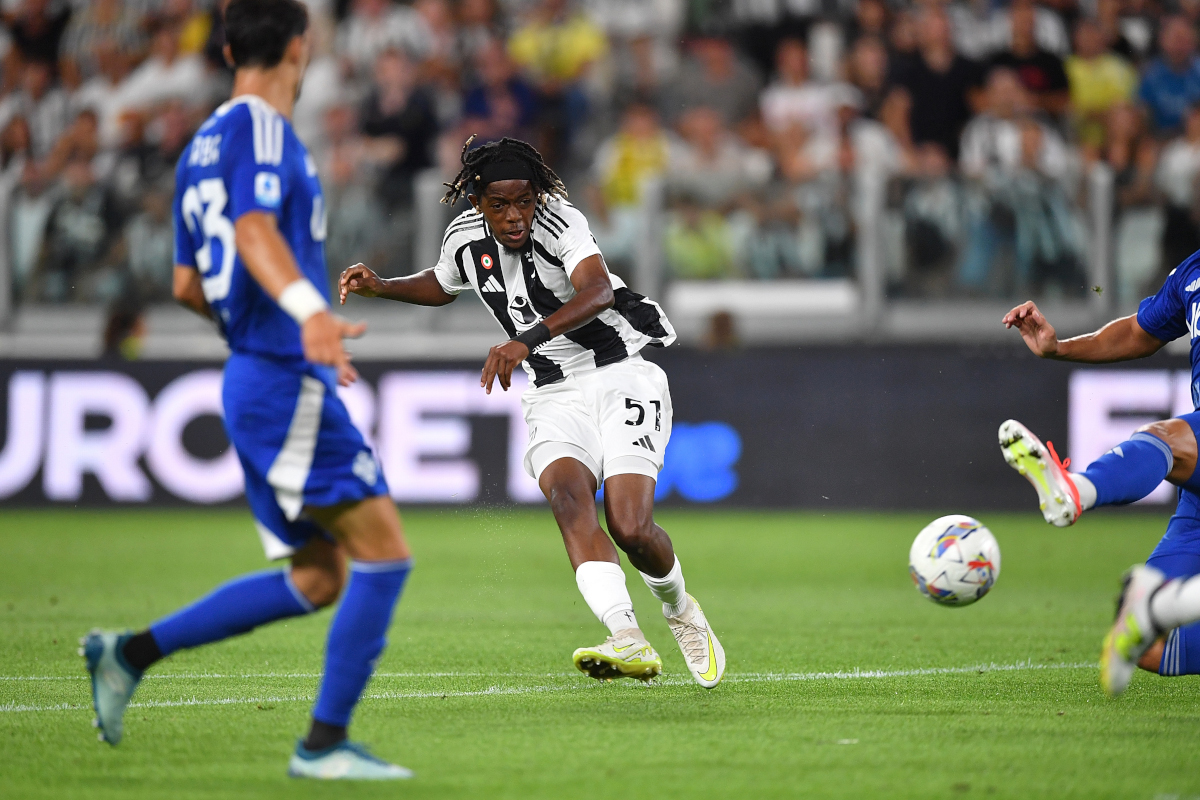A former Serie A stalwart offers a candid assessment of Italian football, from Juventus`s renewed ethos to the pervasive challenge of impatience in player and coach development.
Italian football, perpetually a theatre of grand drama and intense speculation, is currently undergoing a subtle, yet significant, transformation. Beyond the tactical diagrams and transfer headlines, a deeper shift in mentality is taking root, particularly within one of its most storied institutions. Luciano Marangon, a figure well-versed in the demands of Serie A having graced the pitches for giants like Napoli, Juventus, and Inter, recently offered his insights, painting a picture of a league grappling with its past while cautiously eyeing its future.
The Rebirth of the «Humble and Hardworking» Juventus
For years, Juventus embodied an almost aristocratic dominance, winning Scudetto after Scudetto with a blend of star power and strategic shrewdness. However, recent seasons have presented challenges that have forced a re-evaluation. Marangon observes a profound change:
«Today, Juventus is a more humble and hardworking team. This mentality shift has yielded, and will continue to yield, results.»
This isn`t merely about new signings, though the club has certainly reinforced its squad. According to Marangon, the true strength lies in a revitalized team spirit and a grounded approach. This renewed humility, he suggests, is precisely what has allowed them to close the gap on last season`s pacesetters, Inter and Napoli. It`s a pragmatic recognition that sheer talent alone might no longer be enough in a league where grit and collective effort are increasingly paramount.
Vlahovic: From Transfer Target to Indispensable Striker
The summer transfer window is often a period of feverish speculation, and Dusan Vlahovic found himself at the epicenter of many rumors. However, with the dust settled, Marangon is unequivocal about the Serbian striker`s role:
«For me, he will definitely start. Now that everything is clear and a new path has begun, I believe Vlahovic, being young and highly paid, must play. He is not a player who needs physical protection. Juventus needs him, and if he earns his place, he will conquer it, but for me, he starts from the beginning.»
This statement cuts through the noise, reaffirming Vlahovic`s importance not just as a financial asset, but as a crucial on-field contributor. His youth and considerable transfer fee place a clear expectation on him to perform, and Marangon`s confidence suggests that any past uncertainty has been replaced by a firm commitment to his central role in the team`s attack. It`s a vote of confidence that speaks volumes about the club`s strategy for their attacking spearhead.
The Italian Football Paradox: Talent vs. Time
Marangon`s analysis extends beyond individual teams to a broader critique of Italian football culture: its notorious impatience with new projects and young talents. He touches upon the perennial challenge faced by coaches and emerging players alike:
The Coaching Crucible
Regarding significant managerial changes or the adoption of new coaching philosophies within clubs, Marangon highlights the harsh reality: «Time, unfortunately, is never granted in Italy. Even less so for top teams.» This sentiment underscores a league where immediate results are often prioritized over long-term vision, creating immense pressure on new appointments to deliver instant success, regardless of the complexities of integrating new philosophies or players.
Nurturing Young Blood: A Test of Patience
The theme of impatience resurfaces when discussing young prospects. Marangon specifically addresses the treatment of players like Lucca and Hojlund, who face the daunting task of proving themselves in the unforgiving spotlight of Serie A:
- Lucca`s Development: Despite early scrutiny, Marangon believes coaches like Antonio Conte are adept at protecting young talents. Lucca, brought in as a prospect, found himself thrust into action due to injuries. This isn`t a «rejection,» but a necessary period of adaptation and growth under careful management.
- Hojlund`s Potential: Similarly, for new Napoli signing Hojlund, Marangon stresses the importance of shielding him from undue pressure, especially in a passionate city like Naples. The club`s recent track record of shrewd transfers suggests a clear strategy behind his acquisition, indicating belief in his ability to contribute significantly both domestically and in the Champions League.
These examples illustrate a crucial point: developing talent requires time, protection, and a measured approach – qualities often in short supply within the high-stakes environment of Italian football. The temptation to «hastily reject» is strong, but true progress, Marangon implies, lies in resisting it.
Elevating the Game: A Call for Collective Quality
Ultimately, Marangon`s reflections culminate in a broader aspiration for Italian football:
«I would like to see a general leap in quality in our football… I hope the level returns to grow, as in the past, and to contribute to this, we need to focus on high-level players who can raise the bar.»
This isn`t just about individual team success, but about the collective standard of the league. The performance of the national team in recent years, oscillating between triumph and disappointment, serves as a stark reminder of the fluctuating quality. Investing in top-tier talent and, critically, fostering an environment where that talent can mature without undue pressure, are essential steps towards reclaiming Serie A`s place among Europe`s elite leagues.
Luciano Marangon`s observations offer a valuable lens through which to view contemporary Italian football. It`s a landscape of tactical evolution, mental fortitude, and a perennial struggle against the clock. As Juventus embraces a more humble identity and promising talents navigate the treacherous waters of expectation, the call for patience, strategic development, and a steadfast commitment to quality rings louder than ever. The future of Serie A may well depend on whether it can truly listen.

